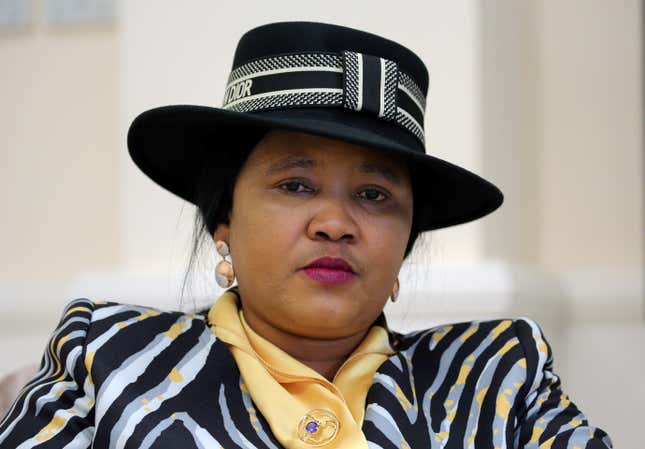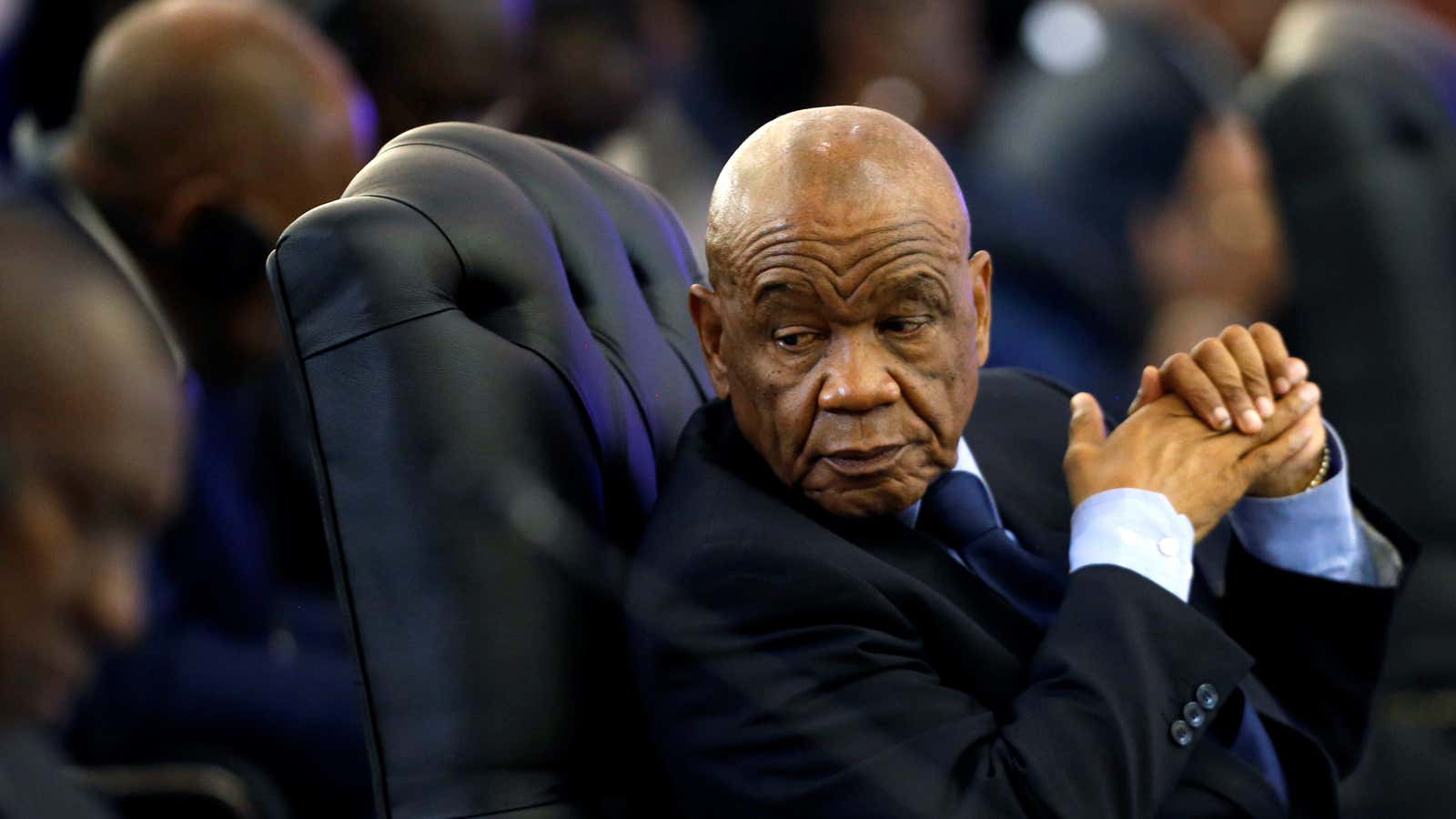When the film, The Forgotten Kingdom came out in 2014, it brought international attention and acclaim to the small country of Lesotho as the movie garnered a slew of awards and favorable reviews.
But now the country is back in the international news cycle again for another unforgettable storyline; one that seems like it’s drawn from the movies but is in actual fact a real-life drama.
Lesotho’s prime minister, Tom Thabane, 80, has been charged with the murder of his then-wife, Liopelo Thabane who was shot dead by unknown assailants in 2017.
Thabane’s current and third wife, Maesaiah Thabane, 42, is out on bail after also being charged for the murder.
Thabane and Maesaiah are believed to be the main conspirators of a hit in which his former wife, Lipolelo, was shot several times at close range. At the time of her murder, Thabane and Lipolelo were embattled in a drawn-out divorce. The prime minister however was already involved with Maesaiah. She had moved into his residence and was starting to take on some official duties, but Lipolelo remained eligible for all the perks and privileges afforded the first lady.
Lipolelo was killed on Jun. 14, 2017, just two days before the inauguration for Tom Thabane’s second term as prime minister. He was accompanied to the inauguration by Maesaiah. On Aug. 27, 2017, less than two months after the murder of his former wife, the octogenarian leader married Maesaiah, his junior by nearly 40 years.
And in an outlandishly dramatic confluence of events worthy of a Hollywood B-movie, Thabane’s first wife, Yayi, died aged 79 that same morning. The prime minister and new third wife Maesiah held a short moment of silence at their wedding ceremony in memory of Yayi but there was no mention of Lipolelo or her murder a few months earlier.

Lesotho’s judiciary must now charter unprecedented territory as Thabane claims his position as prime minister gives him immunity from the charges. The case has been referred to the High Court. If Thabane’s contention that he cannot be prosecuted while holding a leadership position is unsuccessful, he will become the first African leader to be charged with domestic murder while in office.
Appointed to act
Whatever the outcome of the High Court ruling, to even have gotten to this stage is testament to the execution of the rule of law, says John Aerni-Flessner, adjunct assistant professor at Michigan State University, and author of Dreams for Lesotho: Independence, Foreign Assistance, and Development. “The charges came in the midst of complex battles both within Thabane’s ruling ABC Party, and within the 4-party coalition government. The timing of the charges is surprising. But far and away, the most surprising thing was that the charges were filed in the first place as the prime minister can appoint the police commissioner, so the fact that the investigation was moving forward was surprising.”
Given the prime minster’s broad powers in terms of judicial appointments, the court case has heightened years of political tensions.
It may be a degree higher in terms of being unseemly, but Aerni-Flessner sees this battle as fitting the general pattern of high politics being dominated by personalities and factional fights.
“The cases certainly do nothing to improve Lesotho’s reputation in terms of governance, but I am also fairly confident that few viewed it as a bastion of good governance to begin with.”
According to the government mandate, the office of the prime minister in Lesotho has a singular mission. “We are committed to effective and efficient service delivery to Basotho, through communication of government policies and programs, coordination of programs and monitoring implementation in all line ministries.”
However, when the person responsible for carrying out this mission has criminal charges hanging over his head, service delivery becomes contentious.
Loyalty to either the law or the leader is likely to be a conundrum faced by the departments and decision-makers of state.
“Lesotho is the only country in Africa and arguably in the world in our times in which a sitting PM is accused and dragged before the courts of law on a criminal charge,” says Seabata Makoae, a Lesotho-based management and development strategist. “The police have done a marvellous job and should do a lot more to avoid any political influences.”
When it comes to the judiciary, however, Makoae, believes there’s a battle of forces. “It is a shame that the acting chief justice granted a string-less 1,000 rand ($65) bail to Maesaiah Thabane, who for close to a month had fled the country; proving to be a flight risk.”
There are also concerns that authorities ignored the claims by police that she is a dangerous person were not given attention. “The police said she was capable of hiring assassins to eliminate anyone who is standing on her way,” adds Makaoe. “This is terrible but we hope the law will finally catch up with her as there is an appeal against the bail.”
In response to growing pressure from his party, prime minister Thabane has promised to resign. It remains to be seen if this will be before or after his court case is concluded, as he hasn’t yet confirmed the exact date he will step down.
Believing that this is a choice that should never be forgotten, Thabane has said he should be commended, not mocked for this decision. “I have made up my mind to cut short my tenure as prime minister, not many people would want to do that, but I am doing it.”
Sign up to the Quartz Africa Weekly Brief here for news and analysis on African business, tech and innovation in your inbox
